Thousands of members of Russia's Wagner PMC private military group have arrived in Belarus since the brief mutiny led by tycoon Yevgeny Prigozhin late last month.
Belarusian President Alexander Lukashenko has welcomed Wagner forces into his country after brokering a deal between the Kremlin and Wagner leader Prigozhin that ended a rebellion against Russian military leaders.
Cooperation plan
Belarusian Interior Minister Ivan Kubrakov met with representatives of the Wagner PMC private military group to discuss training of the country's special forces, the Belarusian Interior Ministry said on July 24, adding that the two sides have developed a cooperation plan.
“A meeting between Interior Minister Ivan Kurbakov and representatives of the Wagner PMC was held at the ministry’s internal military training center. The event was also attended by the heads and staff of the agency’s special units,” the Belarusian Interior Ministry said in a Telegram post, adding that “issues of interaction with the Wagner PMC and training of our soldiers under the guidance of their personnel were on the agenda.”
The Belarusian Interior Ministry noted that the two sides have developed an action plan and exchanged views on the use of certain types of equipment.
Minister Kubrakov added that given the difficult situation near the country's borders, it is important for Belarus to be ready to respond to possible challenges and threats.
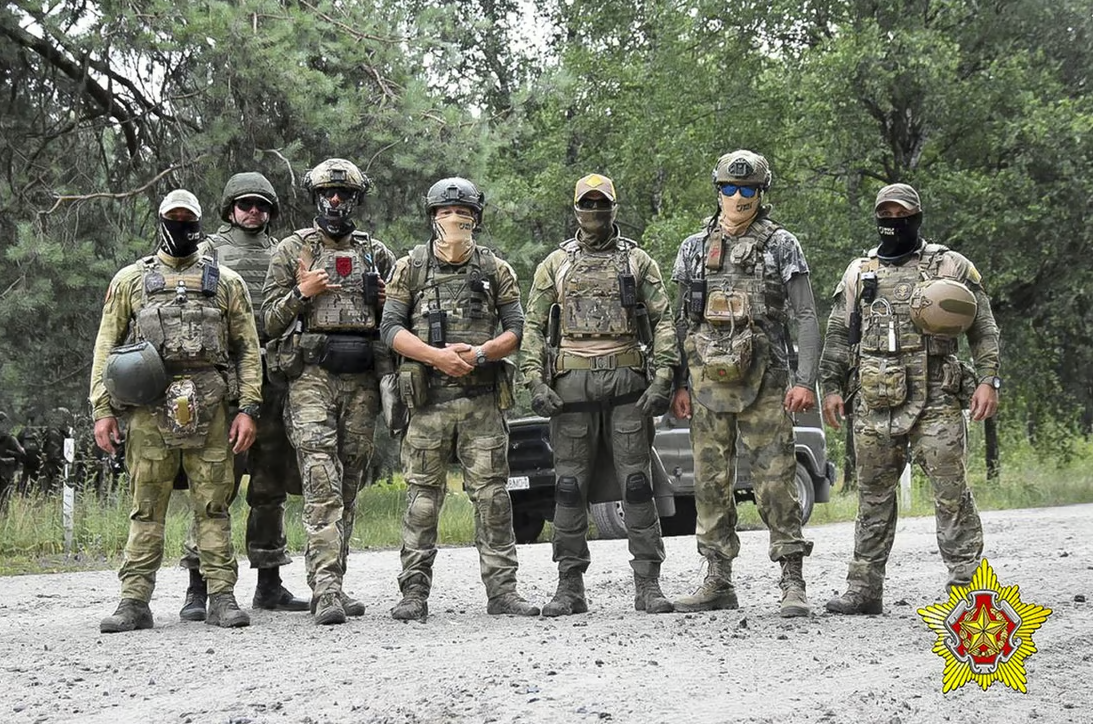
Belarusian soldiers and Wagner soldiers pose for a photo at a shooting range near the border city of Brest, Belarus. Photo released by the Belarusian Ministry of Defense
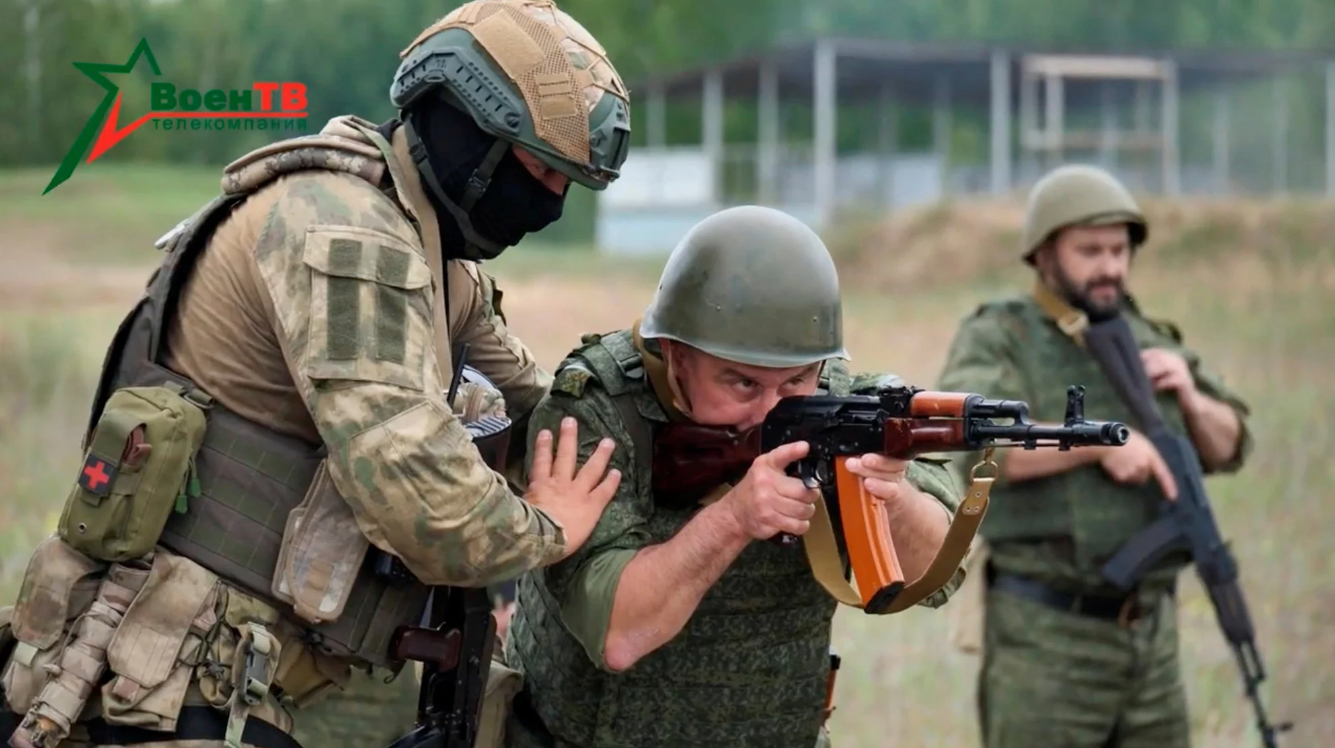
Wagner soldiers help train Belarusian soldiers at a shooting range near the town of Osipovichi, Belarus. Photo released by the Belarusian Ministry of Defense
The Wagner Group, led by Mr. Prigozhin, seized a military headquarters in the southern Russian city of Rostov-on-Don on the night of June 23 and began advancing on the capital Moscow the following day.
Mr Prigozhin described his actions as a response to what he accused the Russian Defense Ministry of carrying out an attack on Wagner group camps in Ukraine. The Russian Defense Ministry has denied the accusations.
After negotiations with Belarusian President Alexander Lukashenko, in coordination with Russian President Vladimir Putin, tycoon Wagner agreed to end the mutiny and move to neighboring Belarus.
Earlier, the Belarusian Defense Ministry said in a statement on July 20 that members of the Belarusian special forces will carry out combat training missions together with Wagner PMC personnel at the Brestsky training ground near the Polish border.
Prior to this operation, Wagner fighters also took part in training soldiers of the Belarusian territorial defense forces near Osipovichi, Mogilev region, according to the Belarusian Defense Ministry.
“Wagner fighters who have gone through fierce combat are now passing on valuable information and experience to our servicemen,” the Belarusian Defense Ministry statement said.
Prevent stress
Belarus has not disclosed how many Wagner PMC members have arrived in the country. But the independent Belarusian monitoring group Belaruski Hajun said on July 24 that between 3,450 and 3,650 Wagner soldiers had arrived at a camp near Osipovichi (also known as Asipovichy), a town 230 kilometers north of the Ukrainian border.
Satellite images show that about 700 vehicles and construction equipment from Wagner's convoy have also arrived in Belarus, Belaruski Hajun said.
Last week, a Wagner commander said in a statement posted on a messaging app channel affiliated with the company that about 10,000 Wagner troops would be deployed to Belarus.
Meanwhile, Wagner boss Prigozhin also registered a “property management company” in Belarus last week called Concord Management and Consulting. Documents analyzed by independent Belarusian media outlet reform.by show that the company’s registered address is in the same village as Wagner’s new base.
Local officials said on July 24 that Wagner soldiers are continuing to work with the Belarusian military, including at training areas near the Polish border.
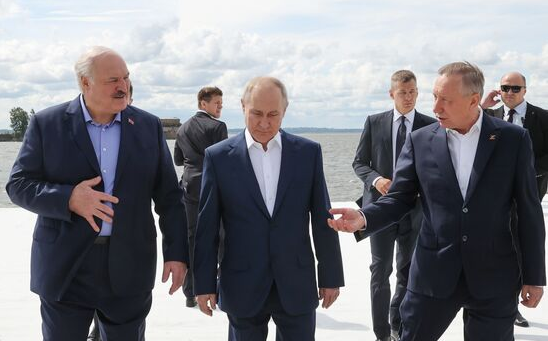
From left, Belarusian President Alexander Lukashenko, Russian President Vladimir Putin and St. Petersburg Governor Alexander Beglov after visiting the Museum of Naval Glory in Kronshtadt, a seaport town on the outskirts of St. Petersburg, Russia, July 23, 2023. Photo: Sputnik
Meeting with Russian President Putin on July 23 in St. Petersburg, Mr. Lukashenko said that Wagner soldiers were “stressing him” by calling for “an operation” into Poland.
Experts have largely dismissed the Belarusian leader’s comments. The US Institute for the Study of War (ISW) said that Wagner troops there cannot pose a threat to Ukraine and Poland.
“There is no indication that Wagner fighters in Belarus have the heavy weapons needed to launch a serious attack against Ukraine or Poland without significant rearmament,” the ISW said in a statement on July 23.
Deputy Director of the Main Intelligence Directorate (GUR) of the Ukrainian Defense Ministry, Vadym Skibitsky, also said that there was no “direct threat” from Russian mercenaries in Belarus, but Kiev would closely monitor Wagner militants.
“Our assessment is simple: Today there is no direct threat (from Belarus), but we are ready. We are monitoring everything related to the so-called Wagner missile defense system,” Skibitsky told journalists, according to the agency’s Telegram channel.
Poland – an EU and NATO member – began moving more than 1,000 troops to the east of the country earlier this month as tensions rose along its shared border with Belarus .
Minh Duc (According to AP, TASS, Sputnik)
Source





![[Photo] Magical moment of double five-colored clouds on Ba Den mountain on the day of the Buddha's relic procession](https://vphoto.vietnam.vn/thumb/1200x675/vietnam/resource/IMAGE/2025/5/9/7a710556965c413397f9e38ac9708d2f)


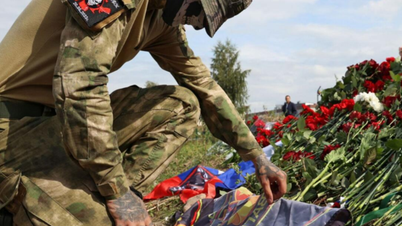
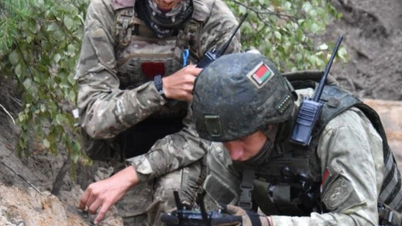
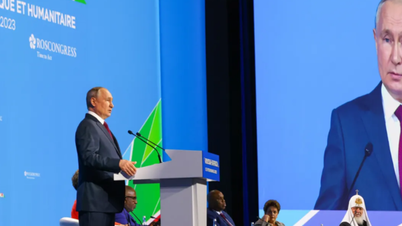
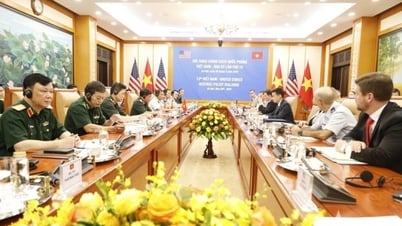


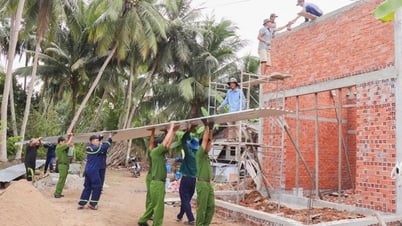












![[Photo] General Secretary To Lam begins official visit to Russia and attends the 80th Anniversary of Victory over Fascism](https://vphoto.vietnam.vn/thumb/1200x675/vietnam/resource/IMAGE/2025/5/8/5d2566d7f67d4a1e9b88bc677831ec9d)

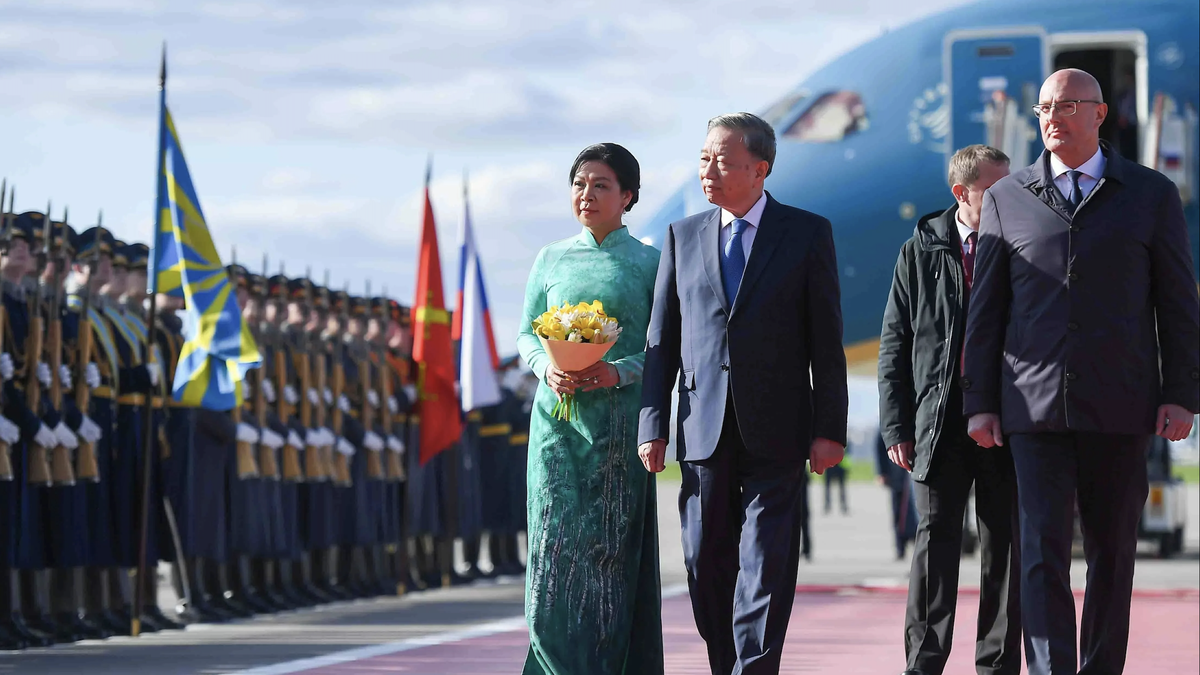





































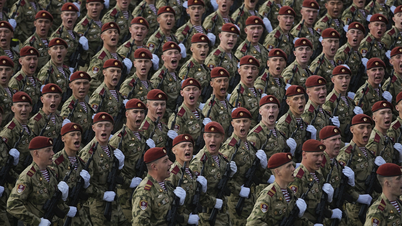






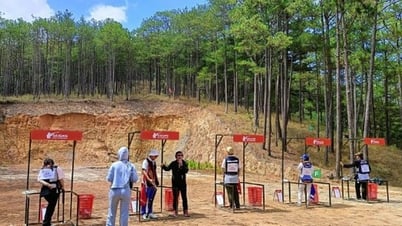





















Comment (0)